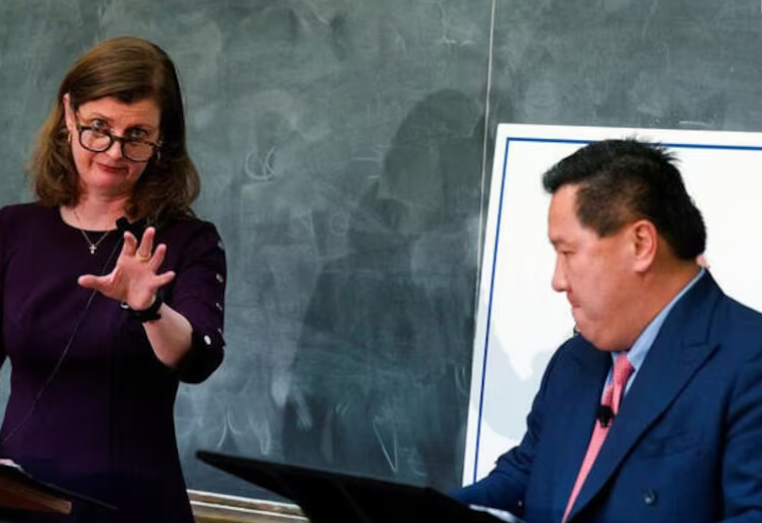A government watchdog group, Citizens for Responsibility and Ethics in Washington (CREW), on Wednesday urged the judiciary to rein in the recurring practice of conservative judges boycotting the hiring of law clerks from specific schools over protests and disruptions on their campuses.
CREW, in a letter, urged the U.S. Judicial Conference to address the matter after 13 judges announced they would not hire students from Columbia University in response to its handling of pro-Palestinian demonstrations prompted by Israel’s war in Gaza.
The judges, all appointees of Republican former President Donald Trump, had in a letter last month called the Manhattan campus an “incubator of bigotry” and argued for “serious consequences” for anyone who participated in the campus demonstrations. The signatories included U.S. Circuit Judges James Ho of the 5th U.S. Circuit Court of Appeals and Elizabeth Branch of the 11th U.S. Circuit Court of Appeals, who have since 2022 announced similar boycotts of clerks from Yale and Stanford over disruptions of conservative speakers on their campuses.
Noah Bookbinder, CREW’s president, argued in Wednesday’s letter that the pattern of boycotts by a small but influential group of federal judges “establishes a damaging and troubling precedent for the entire judiciary.” He stated that by allowing these inappropriate and unethical boycotts to go unaddressed, the federal judiciary would be perceived as increasingly ideologically divided, particularly regarding the hiring policies for judicial clerkships, one of the most coveted legal positions.
Bookbinder asserted that the boycotts appeared to violate several ethical provisions of the Code of Conduct for United States Judges, including one that requires judges to exercise their discretion in hiring fairly and “only on the basis of merit.” He contended that the boycotting judges had adopted an “extraneous litmus test” that required a clerkship candidate to attend a school the judge saw as ideologically acceptable, regardless of the candidate’s individual merit.
He urged the Judicial Conference, the judiciary’s top policymaking body, to review the hiring practices of the judiciary, including those of the judges participating in the boycotts, and take measures to ensure the court system operates under a single unified hiring policy that rejects broad-based boycotts and is committed to merit-based evaluations.
He addressed the letter specifically to U.S. District Judge Robert Conrad, the director of the Administrative Office of the U.S. Courts and secretary to the Judicial Conference. The Administrative Office declined to comment. Ho and Branch did not respond to requests for comment.

